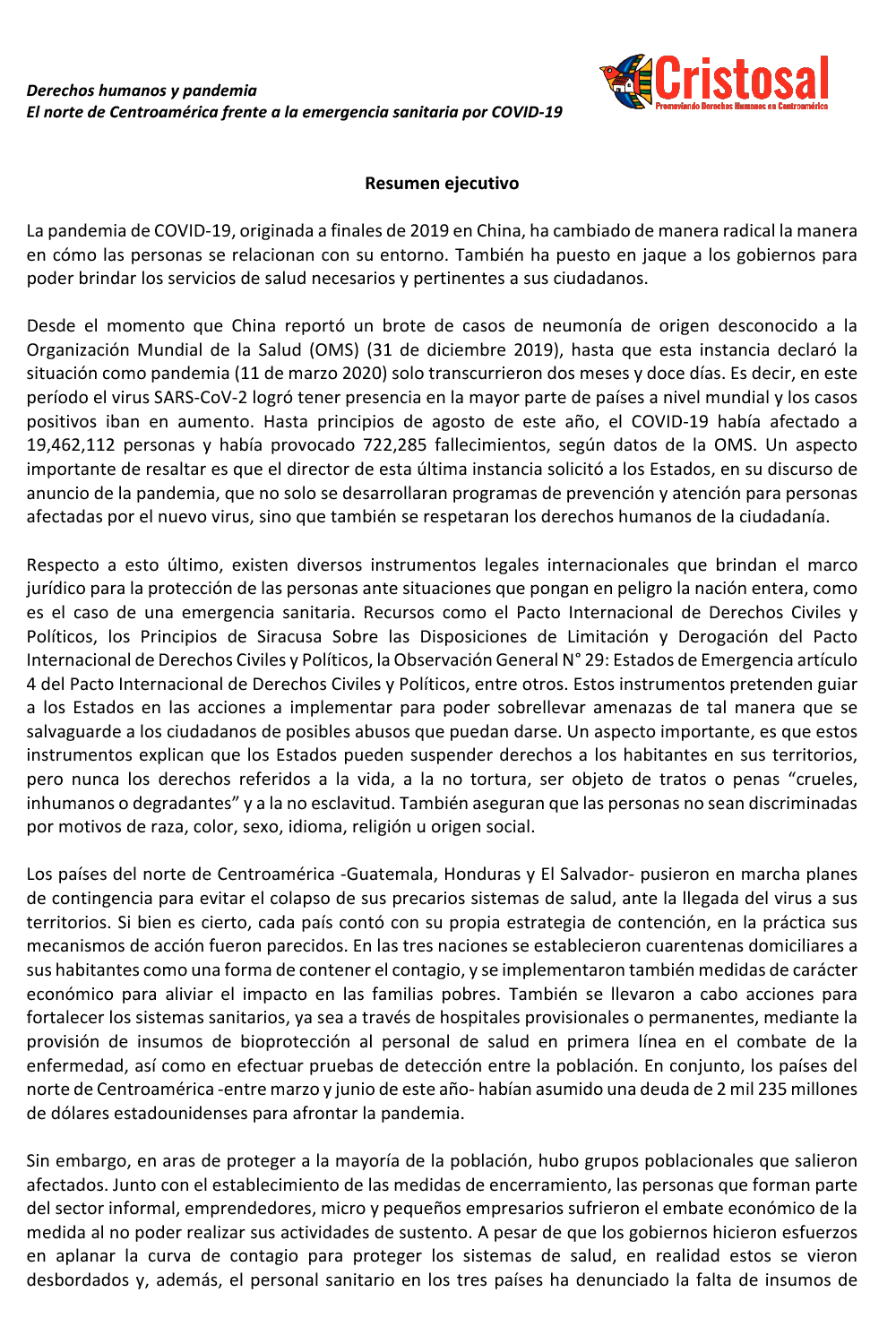
SUMMARY: HUMAN RIGHTS AND PANDEMIC (Spanish)


The COVID-19 pandemic, which began in late 2019 in China, has radically changed the way people relate to their environment. This pandemic has also challenged governments in order to provide the necessary and relevant health services to their citizens.
From the moment that China reported an outbreak of cases of pneumonia of unknown origin to the World Health Organization (WHO) (December 31, 2019) and until this instance declared the situation as a pandemic (March 11, 2020), only two months and twelve days had passed. In other words, in this period, the SARS-CoV-2 virus managed to have a presence in most countries worldwide and positive cases were increasing. As of early August this year, COVID-19 had affected 19,462,112 people and caused 722,285 deaths, according to WHO data. An important aspect to highlight is that the Director of WHO asked the States, in his speech announcing the pandemic, to not only develop prevention and care programs for people affected by the new virus, but also to respect the human rights of citizens.
Regarding the latter, various international legal instruments exist to provide the legal framework for the protection of people in situations that endanger the entire nation, such as a health emergency. Resources such as the International Covenant on Civil and Political Rights, the Syracuse Principles on Limitation and Repeal Provisions of the International Covenant on Civil and Political Rights, General Observation No. 29: States of Emergency, Article 4 of the International Covenant on Civil and Political Rights, among others. These instruments intend to guide the States in the actions to implement in order to cope with threats in a way that citizens are safeguarded from possible abuses that may occur. An important aspect is that these instruments explain that the States can suspend the rights of the inhabitants in their territories, but never the rights related to life, not to be tortured, not to be the object of “cruel, inhuman, or degrading” treatment or punishment, and to non-slavery. They also ensure to protect people from discrimination based on race, color, sex, language, religion, or social origin.



Portal de monitoreo a vulneraciones de derechos humanos
El equipo de investigación de Cristosal brinda monitoreo constante a las violaciones en materia de derechos humanos, para brindar información oportuna y certera sobre las causas y efectos de estas sobre las poblaciones vulneradas. Alimentado por datos provenientes de instituciones Estatales, de sociedad civil y de cooperación internacional, sus publicaciones fortalecen la labor de defensa y promoción de los derechos humanos en el Norte de Centroamérica.